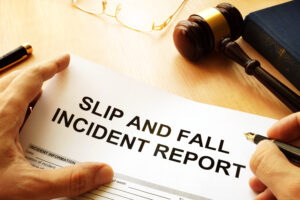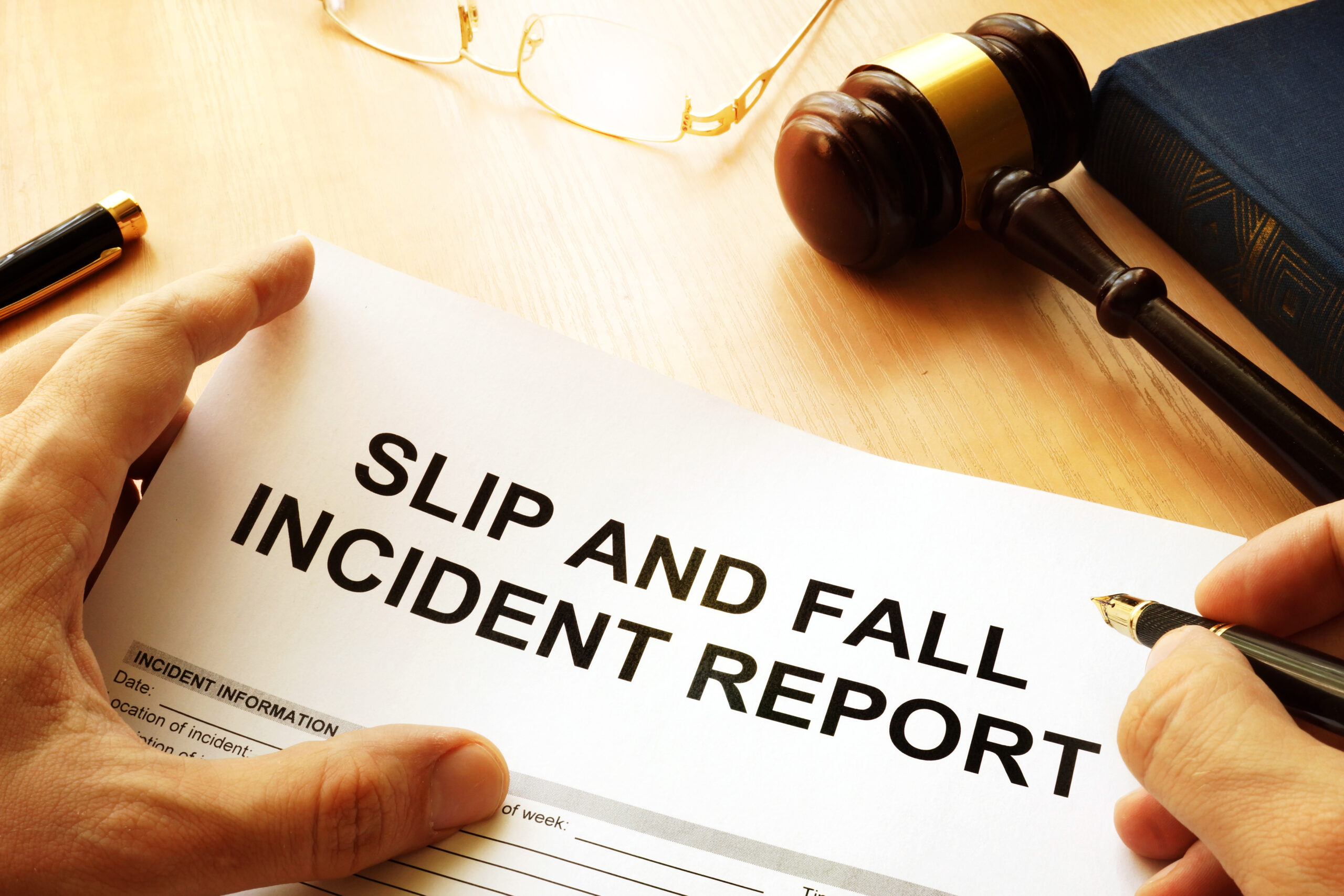Winter Slip-and-Fall Accidents in Massachusetts Due to Snow or Ice Accumulations

Photo Credit: designer491 / Shutterstock.com
As a general rule, property owners have a duty to those whom they invite onto their land to ensure that the property is reasonably safe and that visitors are warned of any hazards that are present on the property. While this duty applies to landowners year-round, the majority of Massachusetts slip-and-fall cases occur in the harsh winter months, where sidewalks and parking lots often more closely resemble ice rinks than pedestrian walkways.
When it comes to snow or ice accumulations on their property, Massachusetts landowners must “act as a reasonable person under all of the circumstances including the likelihood of injury to others, the probable seriousness of such injuries, and the burden of reducing or avoiding the risk.” However, that was not always the case. It used to be that Massachusetts landowners were only responsible for “unnatural” accumulations of snow or ice until the Supreme Judicial Court of Massachusetts issued an opinion abolishing the distinction between natural and unnatural accumulations.
The Factual Basis of the Plaintiff’s Claim
As the court explained the facts, the plaintiff was injured in a grocery store parking lot when he slipped and fell on a chunk of ice that had become frozen to the parking lot pavement. On the day of the plaintiff’s accident, it was not snowing, but it had snowed earlier that week. The grocery store had hired another company to clear the store’s parking lot, and although much of the lot was clear, there were several piles of snow.
Apparently, one of those piles was near where the plaintiff parked. When the plaintiff was returning to his car after shopping, he tripped on a chunk of ice near the base of a pile. The plaintiff filed a premises liability lawsuit, claiming that the store was liable for his injuries.
At the time, Massachusetts law drew a distinction between natural and unnatural accumulations of snow and ice, and a landowner could only be held liable for unnatural accumulations that were the result of their own actions. Thus, the court dismissed the plaintiff’s case on the basis that the chunk of snow was a natural accumulation. The plaintiff appealed.
On appeal, the Supreme Judicial Court of Massachusetts did not bother with determining whether the chunk of ice was natural or unnatural, and instead abolished the distinction between the two. The court explained that the natural-unnatural distinction was a unique aspect of Massachusetts premises liability law that did not comport with the duty of landowners in other contexts, which merely required the landowner keep their property in a “reasonably safe condition.” The court explained that the distinction injected an element of subjectivity and confusion into the analysis, and that courts and jurors are more easily able to decide these cases without the distinction. Thus, the court remanded the plaintiff’s case to be considered under the new version of the law.
Have You Been Injured in a Massachusetts Slip-and-Fall Accident?
If you or a loved one has recently been injured in a Massachusetts slip-and-fall accident, you may be entitled to monetary compensation. The dedicated Massachusetts personal injury lawyers at the Neumann Law Group have decades of combined experience assisting injury victims and their family members in pursuit of claims for compensation arising out of all types of Massachusetts accidents, including slip-and-fall accidents. To learn more, call 617-918-7790 to schedule a free consultation today.
See Related Posts:
Massachusetts Appellate Court Considers Judge’s Reduction of $32 Million Jury Award, Massachusetts Injury Lawyer Blog, December 21, 2018.
Comparative Negligence in Massachusetts Car Accident Cases, Massachusetts Injury Lawyer Blog, December 5, 2018.



